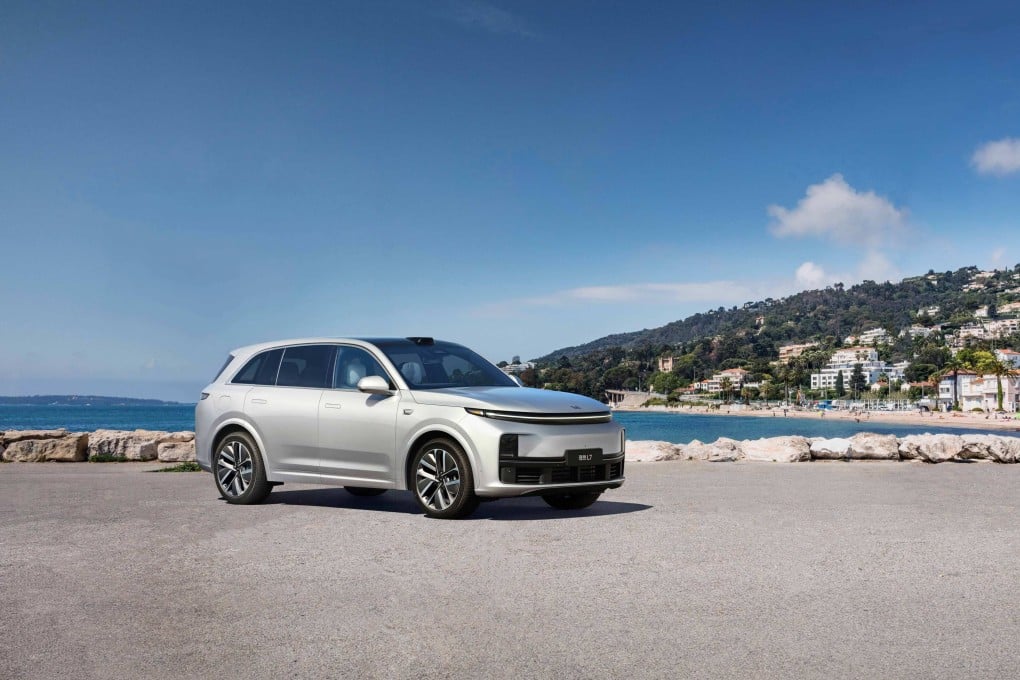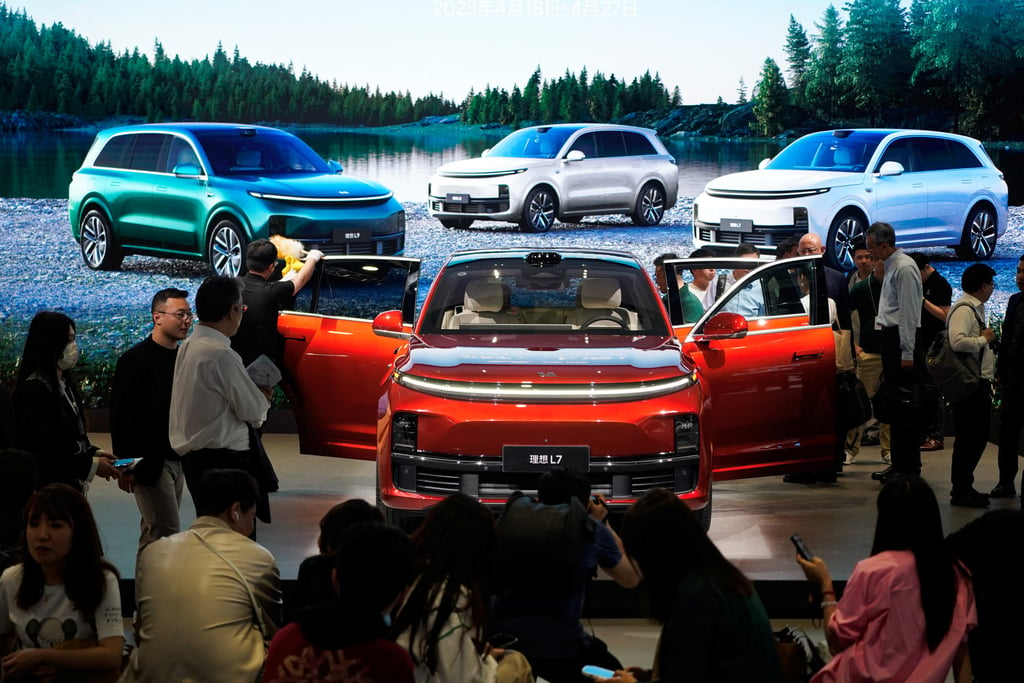Advertisement
China’s EV market: Li Auto gains on Tesla, bucks downward sales trend as premium models appeal to affluent motorists
- Beijing-based Li Auto has outperformed its rivals, setting a new sales record in April, at a time when the overall industry reported a decline
- Li Auto has stayed out of the ongoing price war which saw market leader Tesla and some domestic rivals slash prices by as much as 40 per cent
Reading Time:3 minutes
Why you can trust SCMP

Daniel Renin Shanghai
Unfazed by China’s tepid electric vehicle (EV) sales this year, Li Auto has stepped up production and deliveries of its high-end models reflecting the carmaker’s confidence in its design and battery technology prowess.
The Beijing-based EV start-up has bucked the industry downtrend, setting a new sales record in April, standing out in an industry that is languishing after a bruising price war.
“Li Auto is the most defensive OEM (original equipment manufacturer) name amid the price war given its premium positioning and leadership in the niche family car market,” said Jefferies analysts in a note after the carmaker’s earnings beat the brokerage’s estimates mainly on the strength of lower operating expenditure driven by improved operational efficiency.
Advertisement
Experts say Li Auto has its finger on consumers’ pulse, and is particularly good at catering to tastes of affluent motorists.

Li Auto, founded by its chief executive Li Xiang in 2015, became the first Chinese premium electric-car maker to rise above the monthly delivery threshold of 25,000 units in April, making it the nearest rival to Tesla in the world’s largest automotive and EV market.
Advertisement
Advertisement
Select Voice
Choose your listening speed
Get through articles 2x faster
1.25x
250 WPM
Slow
Average
Fast
1.25x